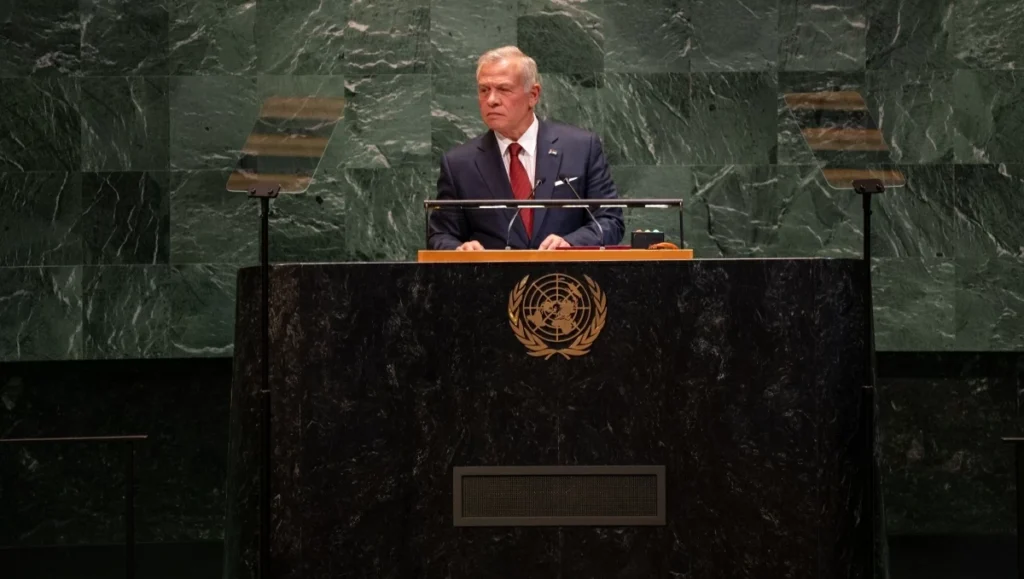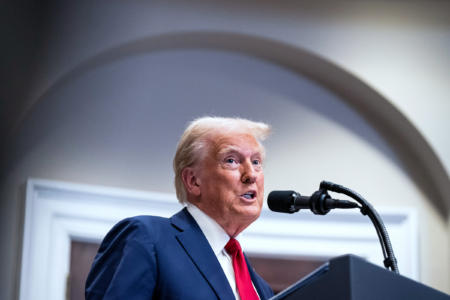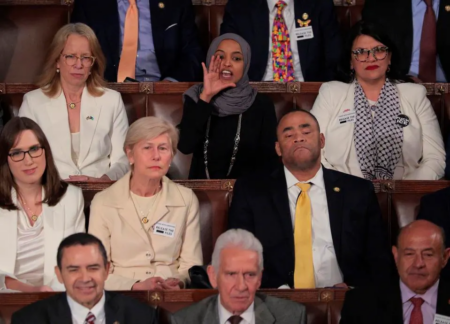During the 80th United Nations General Assembly in New York, Arab Leaders confirmed their support for Gaza calling for urgent action to stop the war there.
They seek concrete action: support for a two-state solution, humanitarian relief, and prevention of further escalation.
Speeches of Arab Leaders at UNGA 80:
King Abdullah II of Jordan
His Majesty King Abdullah II of Jordan delivered a powerful address at the 80th United Nations General Assembly in New York, decrying the ongoing Gaza war as “one of the darkest moments in this institution’s history.”
He urged the world to act, not merely condemn, demanding a permanent ceasefire, humanitarian access, and recognition of Palestinian statehood.
King Abdullah lamented the repeated cycles of violence faced by Palestinians—bombing, displacement, denial of rights—and called on the international community to uphold justice and human dignity.
He also warned against provocative calls to expand Israeli control over neighboring lands and holy sites, citing the risk of inflaming religious conflict.
Then he recounted Jordan’s role in providing humanitarian relief, acknowledging the challenges faced by health workers, aid convoys, and mobile medical teams operating under fire
Egypt Speaks Through Humanitarian and Diplomatic Channels
While President Abdel Fattah El-Sisi did not personally address the UNGA this year, Egypt’s foreign minister and prime minister have taken prominent roles.
Egypt has positioned itself as a leading humanitarian actor in Gaza, providing more than 70% of Gaza’s relief aid bordering the Strip.
The government has frequently called for an immediate ceasefire, diplomatic resolution, and respect for Palestinian rights.
In his absence from the UNGA 80, Egypt reaffirmed that it will not participate in “acts of injustice” that displace Palestinians and continues to push for a two-state solution within international law.
Read also: President Mohamud in His Latest 2025 Interview: We Oppose the Recognition of Somaliland
Qatar’s Emir: Calling Out State Terrorism and Diplomatic Sabotage
In his speech at the UNGA 80, Sheikh Tamim bin Hamad Al Thani, Emir of Qatar, fiercely condemned Israel’s recent airstrike in Doha that targeted a Hamas negotiation delegation.
He branded it “state terrorism” and a violation of Qatar’s sovereignty, warning it undermines ceasefire efforts and trust in diplomacy.
The Emir also criticized Israel’s simultaneous public engagement in negotiation and private military strikes, accusing it of undermining any meaningful peace process.
He called for consistent international pressure to stop attacks, release hostages, and restore dignity to Gaza.
Qatar, long a mediator in Gaza truce negotiations, used its speech to underline the contradictions in Israel’s conduct and assert that dialogue must not be overshadowed by violence.
Arab Leaders Unified Call for Ceasefire, Statehood, and Justice
Taken together, these Arab speeches reflect a growing regional consensus:
- Ceasefire demands are central and urgent.
- Palestinian statehood is not a concession but an inherent right.
- Diplomatic efforts must be honored, not sabotaged by strikes behind the scenes.
- Recognition of Israel’s security cannot bypass the fundamental rights and dignity of Palestinians.
King Abdullah, Sheikh Tamim, and Egyptian leaders (through proxies) have all stressed that the world can no longer rely on condemnation alone.
Their voices add weight to a regional Arab stance compelling the UN and global powers to follow through.








